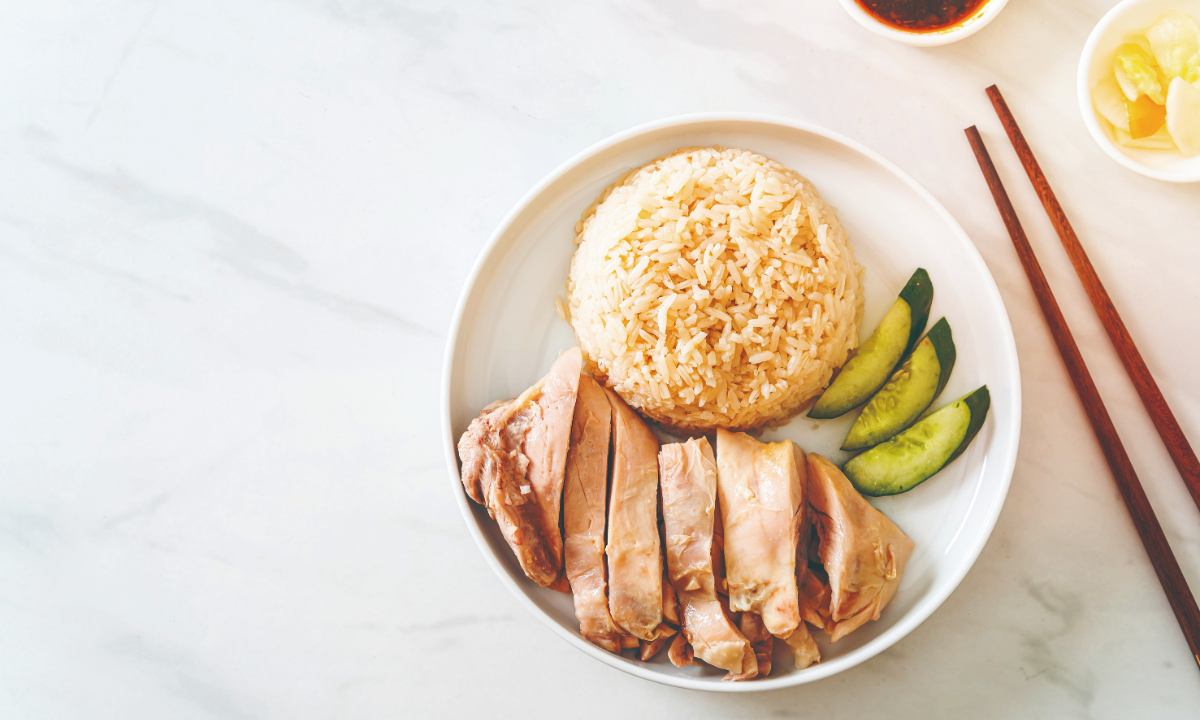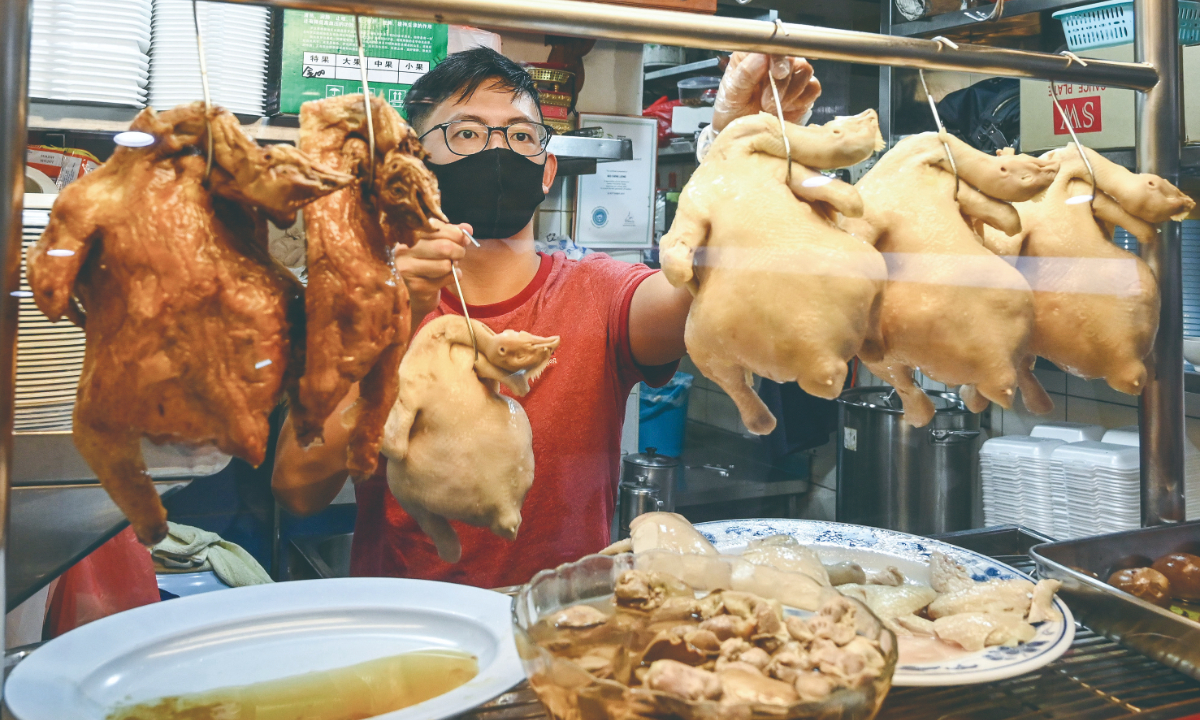
Hainanese chicken rice Photos: VCG

A Hainanese chicken rice vendor Photo: VCG
Located in Kota Kinabalu, Malaysia, Andrew Wong's Hainanese Chicken Rice restaurant is quite famous among the locals.
Andrew Wong Hin Hau, the owner, whose ancestral home is Qionghai, South China's Hainan Province, has been cooking Hainan chicken rice since 2003.
Wong gets up at around 4 o'clock in the morning every day to buy the ingredients at the market, starts to prepare the dish at 5:30 am and gets everything ready around 10:30 am.
He said the most important thing for cooking Hainanese chicken rice is to choose good quality chicken, use Thai fragrant rice, and make the dipping sauce thick. "Hainanese chicken rice looks ordinary, but it is not easy to cook it well," said Wong.
Wong has been improving the recipe. "If the guests are not satisfied, I will find a way to make it better," he said, adding that he has never, however, replaced ingredients for cheaper ones. "You can't cheat your customers by using inferior ingredients just because prices keep rising."
Over the years, Wong has always tried local Hainanese chicken rice when he goes to a new place, such as varieties from China's Shanghai and Hong Kong, and Thailand. He wants to make his restaurant better by studying at other restaurants.
In his eyes, Hainanese chicken rice is a delicacy and heritage from his hometown. "As a Hainanese chef, I'm proud to cook Hainanese chicken rice, so I will continue to do it," he said, noting that he has been cooking it for 19 years, and it's his dream career.
Welcomed by diners, Wong's restaurant sells about 180 servings of Hainanese chicken rice per day. Scott Chong, from South China's Guangdong Province, is a regular customer. "The taste is good, especially the chicken which is tender and the rice is fragrant," he said.
Wenchang, a city in Hainan, is the birthplace of Hainanese chicken rice. On the island, Wenchang chicken is the basic ingredient for chicken rice.
Song Shenmei, 69, is the fourth generation owner of a chicken restaurant in Wenchang.
He has been running the restaurant for more than four decades.
"People in Wenchang eat Wenchang chicken during all the festivals," Song said, adding that during the Qingming Festival in April, many overseas Chinese nationals returning home from Southeast Asian countries will eat Wenchang chicken at his restaurant. Song recalled that in the early 1980s, an overseas Chinese national opened a chicken restaurant in Singapore. When he returned home, he visited Song's restaurant to learn how to cook chicken and make sauce.
"Some overseas Chinese nationals also like to watch me cooking; and after they learn how to cook, they will cook it at home," Song added.
Hainanese chicken rice not only satisfies the diners, but also embodies the taste of home for overseas Chinese from Hainan. It is a vivid reflection of cultural exchanges of people along the Belt and Road countries from history to the present day.
Michael Heng Yee Boon, president of Kota Kinabalu Hainan Association, is a second-generation Malaysian. Heng said chicken rice was always served during the Spring Festival, and his mother would make it into rice balls, which symbolized "reunion" in Chinese.
Having tasted Hainanese chicken rice in both Hainan and Malaysia, Heng said the dish was different in the two places with regard to its sauce and way of cooking.
"Our ancestors came to Malaysia to do business not just with Hainanese. There are different races and different cultures here, so we have combined the cultures to innovate Malaysia's Hainanese chicken rice," he said.
"The Hainanese chicken rice in Malaysia is very international, and it is enjoyed by Malays and foreigners alike," he said, noting that it is the wisdom of their ancestors.
He believed that although culture is constantly evolving, the spirit of the Hainanese, especially the spirit of hard work, is still passed on from generation to generation in Malaysia.
"It's a touching moment whenever we have Hainan chicken rice, for us it's not only a delicacy, but indeed a cultural root of us, and we would continue to pass it on," Heng said.
Xinhua





